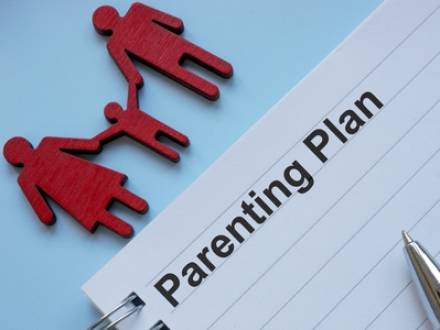 630-393-3111
630-393-3111
4200 Cantera Drive, Suite 200 | Warrenville, IL 60555
Recent Blog Posts
What Does It Mean to Freeze Assets During an Illinois Divorce?
 For most people, approaching the asset division element of an Illinois divorce can be the most nerve-wracking part of the process. Often, couples disagree on how property should be categorized – marital or separate – and then further disputes arise when deciding how to divide assets and liabilities. If you are concerned that your spouse may endanger your shared property by hiding, abusing, or wasting it, you need to know more about freezing assets. An experienced DuPage County asset division attorney will walk you through the process and help you protect your right to a fair divorce settlement.
For most people, approaching the asset division element of an Illinois divorce can be the most nerve-wracking part of the process. Often, couples disagree on how property should be categorized – marital or separate – and then further disputes arise when deciding how to divide assets and liabilities. If you are concerned that your spouse may endanger your shared property by hiding, abusing, or wasting it, you need to know more about freezing assets. An experienced DuPage County asset division attorney will walk you through the process and help you protect your right to a fair divorce settlement.
Does Illinois Have an Automatic Financial Stay for Divorce Cases?
In some states, filing for divorce initiates an automatic financial stay, freezing assets and preventing both spouses from hiding, removing, or wasting them. However, that is not the case in Illinois. If you believe marital assets need protection during divorce proceedings, you need to request a financial restraining order to freeze them. The court will then conduct an assessment of the spouse’s actions or threats of action to determine whether the restraining order is necessary.
Supporting Your Adult Child in Their Divorce
 Divorce rates among people over age 50 have more than doubled since the 1990s and many of these breakups involve adult children with families, careers, and long histories of shared financial responsibility. If your son or daughter is going through a divorce in Naperville or elsewhere in DuPage County, you may be wondering how to help without overstepping. While the process is different than it would be for a younger couple, it is no less emotionally complex.
Divorce rates among people over age 50 have more than doubled since the 1990s and many of these breakups involve adult children with families, careers, and long histories of shared financial responsibility. If your son or daughter is going through a divorce in Naperville or elsewhere in DuPage County, you may be wondering how to help without overstepping. While the process is different than it would be for a younger couple, it is no less emotionally complex.
As of May 2025, Illinois divorce law continues to apply the same statutes regardless of age, but the way families navigate divorces for adult children often requires a different kind of support — one rooted in respect, patience, and guidance rather than intervention. Read some tips from our Illinois divorce lawyer about supporting an adult child through their divorce. If your child has young children of their own, you can read more about the basics of child custody in Illinois.
What Does Divorce Mediation Look Like?
 You have probably heard that divorce mediation is cheaper, faster, and less stressful than courtroom divorce. That is sometimes true. But what you may not have heard is that mediation is still a process that is emotionally raw, legally complex, and full of hard compromises.
You have probably heard that divorce mediation is cheaper, faster, and less stressful than courtroom divorce. That is sometimes true. But what you may not have heard is that mediation is still a process that is emotionally raw, legally complex, and full of hard compromises.
In Illinois, mediation is not just an alternative to courtroom litigation. It is often a required step, especially when child custody is involved. If you are getting divorced in Illinois, you should expect to go through it. The question is not whether you will attend mediation, but how to make it work. At Calabrese Associates, P.C., our DuPage County, IL divorce mediation attorney can make the process of mediation approachable.
What It’s Like Inside the Divorce Mediation Room
Divorce mediation is a structured process in which a neutral third party — the mediator — helps you and your spouse negotiate an agreement. The mediator is not a judge and will not decide your case. Rather, the mediator’s role is to facilitate conversation, clarify points of conflict, and guide you toward resolution.
What Can I Do if My Ex Does Not Follow Our Illinois Divorce Decree?
 A court-ordered divorce decree can include judgments about property division, spousal support, allocation of parental responsibilities, and child support. When an ex-spouse does not follow the obligations laid out in the divorce decree, you may need legal assistance in the form of an enforcement of the judgment. If you are struggling with an uncooperative ex, you do not have to face the challenge alone – a Naperville, IL enforcement of judgments attorney can help.
A court-ordered divorce decree can include judgments about property division, spousal support, allocation of parental responsibilities, and child support. When an ex-spouse does not follow the obligations laid out in the divorce decree, you may need legal assistance in the form of an enforcement of the judgment. If you are struggling with an uncooperative ex, you do not have to face the challenge alone – a Naperville, IL enforcement of judgments attorney can help.
Steps You Can Take if Your Ex-Spouse Does Not Follow the Divorce Decree
When your ex-spouse does not fulfill their post-divorce obligations, you have to take action to ensure that your needs are met. Consider some steps you can take before filing a motion for the court to enforce the decree:
-
Violation determination: Keep records of exactly which elements of the divorce decree your ex has failed to uphold. For example, have they skipped alimony payments or ignored the parenting plan?
Understanding Marital vs. Non-Marital Property in an Illinois Divorce
 The divorce process is different for every couple because it is extremely personal. Many elements impact what your divorce looks like, including whether you have children and how many assets you have separately and together. To understand the division of assets, you first need to know how Illinois law differentiates between separate, also known as non-marital, and marital property. A DuPage County, IL asset division attorney can help you navigate the process, which is especially useful if you have a complex portfolio.
The divorce process is different for every couple because it is extremely personal. Many elements impact what your divorce looks like, including whether you have children and how many assets you have separately and together. To understand the division of assets, you first need to know how Illinois law differentiates between separate, also known as non-marital, and marital property. A DuPage County, IL asset division attorney can help you navigate the process, which is especially useful if you have a complex portfolio.
How Does Illinois Law Define Marital Property?
The Illinois Marriage and Dissolution of Marriage Act addresses the characterization of marital and non-marital property. In general, everything you acquire together as a married couple would be marital property. This includes income, assets, and debts. As an equitable distribution state, these assets will be divided based on consideration of certain factors, including your contributions to the property. Common examples of marital property include bank accounts, real estate, and vehicles.
What Happens if You Disagree with Your Parenting Plan?
 Parenting plans are designed to provide clarity and structure for the children of parents who are no longer together. These plans outline everything from weekly parenting time schedules to holidays, decision-making responsibilities, and communication guidelines. But what happens when both parents genuinely believe they are following the plan — yet interpret it in different ways?
Parenting plans are designed to provide clarity and structure for the children of parents who are no longer together. These plans outline everything from weekly parenting time schedules to holidays, decision-making responsibilities, and communication guidelines. But what happens when both parents genuinely believe they are following the plan — yet interpret it in different ways?
Disagreements over the wording or intent of a parenting plan are more common than many people expect. These issues can arise months or even years after a divorce or custody order is finalized, especially as children grow older and their needs evolve. Understanding your options for resolving these conflicts is the first step toward preserving a cooperative co-parenting relationship and ensuring your child’s well-being, and our Naperville child custody lawyer is here to help.
5 Parenting Agreement Facts To Know During Divorce
 In Illinois, parenting time is a critical aspect of parenting agreements, and you should understand the laws involved if you are planning to get divorced. An experienced Illinois divorce attorney at Calabrese Associates, P.C. is a key resource for your divorce and parenting time case.
In Illinois, parenting time is a critical aspect of parenting agreements, and you should understand the laws involved if you are planning to get divorced. An experienced Illinois divorce attorney at Calabrese Associates, P.C. is a key resource for your divorce and parenting time case.
Parenting Time and Child Custody are Different
Parenting time is different from child custody. Illinois has replaced "child custody" with "parental responsibilities" in the Illinois Marriage and Dissolution of Marriage Act. This phrase refers to each parent's parenting time and decision-making authority after the divorce is final.
Parenting time means the days and hours each party spends with the children. State law encourages parents to share parenting time and decision-making equally, when appropriate. However, the court will render decisions based on the child’s best interests.
Can I Challenge a Prenuptial Agreement in Illinois?
 No one signs a prenuptial agreement thinking that they will definitely need it one day. Regardless, divorce is common, and often, with that process comes the division of assets, child custody, and more stressful considerations. Prenuptial agreements can simplify or complicate divorce. If you need to contest a prenup, a Naperville, IL prenuptial agreement attorney can help you understand the legal options available and what you need to seek a better arrangement.
No one signs a prenuptial agreement thinking that they will definitely need it one day. Regardless, divorce is common, and often, with that process comes the division of assets, child custody, and more stressful considerations. Prenuptial agreements can simplify or complicate divorce. If you need to contest a prenup, a Naperville, IL prenuptial agreement attorney can help you understand the legal options available and what you need to seek a better arrangement.
What Are the Grounds For Contesting a Prenuptial Agreement?
A standard prenuptial agreement outlines what will happen to assets and liabilities should the marriage result in divorce. Sometimes, this works more in favor of one party. There are many reasons to contest a prenup, including but not limited to the following:
Will Your Business Be Divided in an Illinois Divorce?
 In Illinois, a divorce can significantly impact a business, especially if it qualifies to be included as part of the division of marital assets. The state follows an equitable distribution rule, which means that marital property is divided fairly, and that can include a business. How the company is affected depends on several factors, and you should review the matter with an Illinois family law attorney to understand your rights. At Calabrese Associates, P.C., we can assist with asset division and how it relates to your business.
In Illinois, a divorce can significantly impact a business, especially if it qualifies to be included as part of the division of marital assets. The state follows an equitable distribution rule, which means that marital property is divided fairly, and that can include a business. How the company is affected depends on several factors, and you should review the matter with an Illinois family law attorney to understand your rights. At Calabrese Associates, P.C., we can assist with asset division and how it relates to your business.
Business Classification
First, how can you know whether the business is marital or non-marital property? It is marital property if you started or acquired the business during your marriage. If so, it is subject to division. It does not matter which spouse ran the business. Even if only your name is on the business, it still may be considered marital property if marital efforts and funds were involved in the company’s growth.
When Should I Sign a Postnuptial Agreement?
 Over the course of your marriage, you and your spouse will inevitably come across obstacles and opportunities. You may not have seen the need to sign a prenuptial agreement before your marriage, but circumstances can change after your vows, necessitating a guarantee of financial security. If you are thinking about drafting a postnup, an Illinois family law attorney can help you get the document in writing.
Over the course of your marriage, you and your spouse will inevitably come across obstacles and opportunities. You may not have seen the need to sign a prenuptial agreement before your marriage, but circumstances can change after your vows, necessitating a guarantee of financial security. If you are thinking about drafting a postnup, an Illinois family law attorney can help you get the document in writing.
The purpose of a postnuptial agreement is to dictate how certain financial aspects of your divorce will be handled, if it ever comes to pass. At Calabrese Associates, P.C., our family lawyer can simplify the process of writing a postnup so that you and your spouse can rest easy.
Starting a Shared Business
Starting a joint business venture with your spouse can be an exciting time in your marriage. However, you may have a difficult time splitting up your business interests in your divorce without interrupting your daily operations.


 4200 Cantera Drive, Suite 200, Warrenville, IL 60555
4200 Cantera Drive, Suite 200, Warrenville, IL 60555 630-393-3111
630-393-3111





